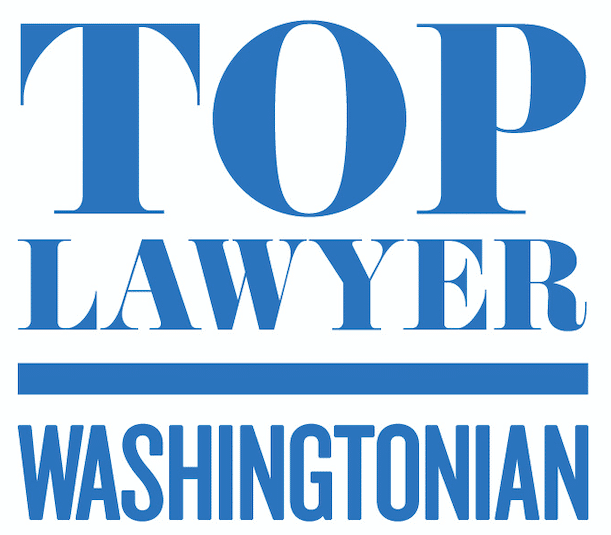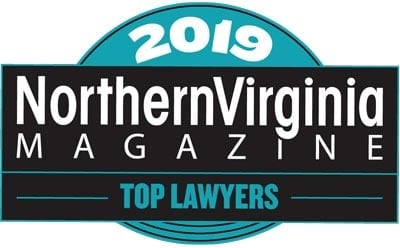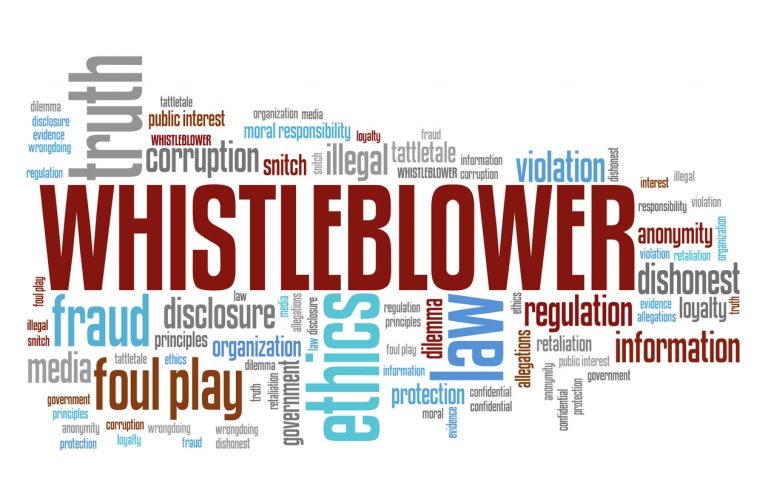What is a whistleblower?
A whistleblower is a person who exposes wrongdoing, such as fraud, waste, and abuse of authority, corruption, or threats to public health or safety. Federal and state laws offer whistleblowers rewards and whistleblower protections for individuals exposing certain types of wrongdoing. Some whistleblowing is not protected and could subject a whistleblower to liability. Examples include a CIA employee disclosing classified information, an IRS employee disclosing taxpayer information, or a Treasury employee disclosing a suspicious activity report. Prior to blowing the whistle, consult with an experienced whistleblower attorney to understand your rights and protections and to avoid exposing wrongdoing in an unlawful manner.
Leading whistleblower firm Zuckerman Law represents whistleblowers nationwide. If you are seeking representation in a whistleblower retaliation or whistleblower protection case, click here, or call our whistleblower retaliation lawyers at 202-262-8959 to schedule a confidential consultation.






For more information about whistleblower laws, see our whistleblower rewards and protections wiki.
Whistleblower Rewards and Protections
A whistleblower reward is a monetary incentive offered under various whistleblower reward programs to individuals for exposing certain types of wrongdoing. If the government uses a whistleblower’s information to recover funds, the whistleblower may receive up to 30% of the recovery as a reward. There are four main whistleblower reward programs in the United States:
- SEC Whistleblower Program
- CFTC Whistleblower Program
- IRS Whistleblower Program
- False Claims Act / Qui Tam Lawsuits
Many state and federal laws also afford whistleblowers substantial protections against retaliation. If you are seeking representation in a whistleblower case, click here, or call us at 202-262-8959 to schedule a free, confidential consultation.
SEC Whistleblower Program
Under the SEC Whistleblower Reward Program, the SEC is required to issue awards to whistleblowers who provide original information about violations of the federal securities laws that leads to enforcement actions with total monetary sanctions in excess of $1 million. A whistleblower may receive an award of between 10% and 30% of the monetary sanctions collected. To date, SEC enforcement actions from whistleblower tips have resulted in nearly $4 billion in financial remedies and has paid more than $1.3 billion in SEC whistleblower awards.
The most common types of tips reported to the SEC Office of the Whistleblower include:
- Accounting fraud;
- Investment fraud;
- Foreign bribery and other FCPA violations;
- EB-5 investment fraud; and
- Fraudulent securities offerings, such as Ponzi and pyramid schemes.
The SEC Whistleblower Program allows whistleblowers to submit anonymous tips to the SEC if represented by an attorney. Whistleblowers are also afforded substantial privacy, confidentiality, and anti-retaliations protections.
To learn more about the SEC Whistleblower Program, download Zuckerman Law’s eBook SEC Whistleblower Program: Tips from SEC Whistleblower Attorneys to Maximize an SEC Whistleblower Award.
CFTC Whistleblower Program
Under the CFTC Whistleblower Program, the CFTC is required to issue awards to whistleblowers who provide original information about violations of the Commodity Exchange Act that leads to enforcement actions with total monetary sanctions in excess of $1 million. In exchange for the information, a whistleblower may receive an award of between 10% and 30% of the total monetary sanctions collected. The largest CFTC whistleblower reward to date is $200 million.
The most common types of tips reported to the CFTC include violations or fraud, such as market manipulation, in connection with:
- Commodity futures;
- Commodity options;
- Swap trading markets;
- Derivatives; and
-
Foreign corrupt practices, including actions that seek to improperly influence foreign officials in connection to the commodities or derivatives markets.
Like the SEC Whistleblower Program, whistleblowers may submit anonymous tips to the CFTC if represented by an attorney and are afforded substantial privacy, confidentiality, and anti-retaliations protections.
IRS Whistleblower Program
Under the IRS Whistleblower Program, the IRS is required to issue awards to eligible whistleblowers who provide original information about tax fraud or underpayments in excess of $2 million (or if the taxpayer is an individual, his or her gross income must exceed $200,000 for at least one of the tax years in question). A whistleblower may receive an award of between 15% and 30% of the total “proceeds” collected by the IRS, which includes:
- Penalties, interest, additions to tax, and additional amounts provided under the internal revenue laws; and
- Any proceeds arising from laws for which the IRS is authorized to administer, enforce, or investigate, including criminal fines and civil forfeitures, and violations of reporting requirements.
The largest IRS whistleblower reward to date is $104 million. The IRS’ annual “Dirty Dozen” lists common scams that whistleblowers may report to the agency.
Tax whistleblowers cannot report anonymously to the IRS, however, they are afforded substantial anti-retaliation protections under the Taxpayer First Act, which was signed into law on July 1, 2019.
False Claims Act Qui Tam Whistleblower Awards
The False Claims Act (FCA) contains a provision allowing whistleblowers, or qui tam “relators”, to bring suits on behalf of the United States against the false claimant. The Act was signed into law to combat fraud against the government and provides whistleblower awards of between 15% and 30% percent of monetary recoveries. The largest qui tam whistleblower reward to date is $250 million.
Examples of the types of fraud that can qualify for a qui tam whistleblower award include:
- Paying kickbacks to refer patients for services that will be reimbursed by Medicare;
- Fraudulently inducing a contract, i.e., making false representations to induce the government to enter into a contract;
- Bid rigging; and
- Violations of good manufacturing practices.
The FCA also affords whistleblowers with substantial anti-retaliation protections. For more information on the FCA and qui tam whistleblower awards and protections, click here.
Whistleblower Retaliation
Damages and Remedies for Whistleblower Retaliation
Unprotected Whistleblowing
Whistleblowers provide a vital public service and the law generally encourages whistleblowing. But some whistleblowing is unlawful. For example, Edward Snowden acted unlawfully when he leaked confidential national security information to the media. In the past year, additional whistleblowers have been prosecuted or convicted for making alleged unlawful disclosures, including:
- Tesla sued a former employee, Martin Tripp, for allegedly hacking, stealing and leaking confidential company information to the press;
- A senior Treasury Department employee was arrested and charged with disclosing suspicious activity reports to a reporter;
- A former PwC employee, Antoine Deltour, was convicted (which was later overturned by Luxembourg’s highest court) for passing confidential tax information on PwC clients to the media.
Whistleblowers should consult with experienced whistleblower attorneys in order to determine how to report to the government and what type of evidence to provide. Moreover, whistleblowers should consult with an experienced whistleblower attorney to determine if their claim qualifies for a reward under one of the whistleblower reward programs. For more information about whistleblower rewards and bounties, contact leading whistleblower law firm Zuckerman Law at 202-262-8959 or email us at [email protected].
Top-Rated Whistleblower Lawyers
We have assembled a team of leading whistleblower lawyers to provide top-notch representation to SEC whistleblowers. Recently Washingtonian magazine named two of our attorneys top whistleblower lawyers. U.S. News and Best Lawyers® have named Zuckerman Law a Tier 1 firm in Litigation – Labor and Employment in the Washington DC metropolitan area.




- Matt Stock is a Certified Public Accountant, Certified Fraud Examiner and former KPMG external auditor. As an auditor, Stock developed expertise in financial statement analysis and internal controls testing and fraud recognition. He uses his auditing experience to help IRS, CFTC and SEC whistleblowers investigate and disclose complex financial frauds to the government and develop a roadmap for the SEC to take an enforcement action. Matt has been interviewed on CNBC, quoted extensively about whistleblower rewards in the media, and is the lead author of SEC Whistleblower Program: Tips from SEC Whistleblower Attorneys to Maximize an SEC Whistleblower Award.
- Dallas Hammer has extensive experience representing whistleblowers in retaliation and rewards claims and has written extensively about cybersecurity whistleblowing. He was selected by his peers to be included in The Best Lawyers in America® in the category of employment law in 2021 and 2022.
- Described by the National Law Journal as a “leading whistleblower attorney,” founding Principal Jason Zuckerman has established precedent under a wide range of whistleblower protection laws and obtained substantial compensation for his clients and recoveries for the government in whistleblower rewards and whistleblower retaliation cases. He served on the Department of Labor’s Whistleblower Protection Advisory Committee, which makes recommendations to the Secretary of Labor to improve OSHA’s administration of federal whistleblower protection laws. Zuckerman also served as Senior Legal Advisor to the Special Counsel at the U.S. Office of Special Counsel, the federal agency charged with protecting whistleblowers in the federal government. At OSC, he oversaw investigations of whistleblower claims and obtained corrective action or relief for whistleblowers.
- Zuckerman was recognized by Washingtonian magazine as a “Top Whistleblower Lawyer” (2020, 2018, 2017, 2015, 2009, and 2007), selected by his peers to be included in The Best Lawyers in America® in the category of employment law (2011-2021) and in SuperLawyers in the category of labor and employment law (2012 and 2015-2021), is rated 10 out of 10 by Avvo, based largely on client reviews, and is rated AV Preeminent® by Martindale-Hubbell based on peer reviews
- We have published extensively on whistleblower rights and protections, and speak nationwide at seminars and continuing legal education conferences. We blog about new developments under whistleblower retaliation and rewards laws at the Whistleblower Protection Law and SEC Awards Blog, and in 2019, the National Law Review awarded Zuckerman its “Go-To Thought Leadership Award” for his analysis of developments in whistleblower law.
- Our attorneys have been quoted by and published articles in leading business, accounting, and legal periodicals, including The Wall Street Journal, Forbes, CNBC, MarketWatch, Vox, Accounting Today, Going Concern, Law360 – Expert Analysis, Investopedia, The National Law Review, inSecurities, Government Accountability Project, S&P Global Market Intelligence, Risk & Compliance Magazine, The D&O Diary, The Compliance and Ethics Blog, Compliance Week and other printed and electronic media.


